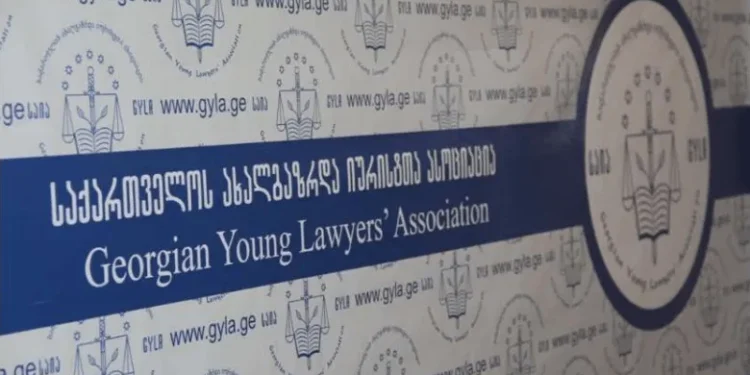The Georgian Young Lawyers’ Association (GYLA) has expressed concerns over judicial decisions in cases involving activists, declaring that the decisions consistently work against them, raising doubts about political persecution.
“Different judges may hold varying legal perspectives on different issues, but it is evident that decisions in cases involving activists are consistently unfavorable to them,” GYLA stated, pointing out that this pattern carries political motives behind the prosecutions.
GYLA has been monitoring the criminal proceedings related to protests, particularly pre-trial hearings. Their observations were as follows:
- A total of 64 individuals have been detained in protest-related cases, including those arrested during the spring 2024 demonstrations against the ‘Russian law.’
- The first-instance court has already ruled on cases involving 10 individuals detained in the Russian law protests, convicting all of them, with eight receiving prison sentences.
- The majority of defendants in these protest-related cases remain in custody, with 40 out of 46 individuals still detained since the early stages of their legal proceedings.
GYLA identified numerous issues in pre-trial hearings, particularly the admissibility of evidence, with nearly all cases accepting the prosecution’s evidence. However, in the case of Mzia Amaglobeli, a judge in the Batumi City Court excluded one witness from the prosecution’s list, making it a rare instance of a judicial decision that did not fully favor the prosecution.
Defense lawyers argued that video materials sourced from public platforms such as YouTube, social media, or media outlets should have been obtained through formal investigation procedures under Article 136 of the Criminal Procedure Code, challenging the inclusion of video evidence in at least two cases. They maintained that, without having followed proper procedures, such evidence should be deemed inadmissible. Despite these arguments, the court rejected the defense’s motions, siding with the prosecution.
“The judiciary may have differing legal interpretations, but the consistent rulings against activists leave little doubt that these cases are driven by political motives,” GYLA concluded in its evaluation.














